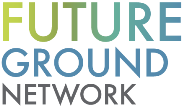Target Climate Initiatives
This is a large, broad overview, but I feel that it has powerful impact. As a teacher working with three school boards, I realized that I could help to mobilize the community to target the climate crisis by getting school boards and municipal boards involved. There was positive interest on both sides to initiate action for climate literacy but policies and procedures would get in the way if it was coming from the top, so we decided to spark action from the grassroots up. In Nov 2019, we organized an event to gather students, politicians and community to share ideas and thoughts. By bringing people together into the same space at the same time, relationships were forged to have more meaningful conversations around local issues. The organization of the event was also done by students so students benefitted from leadership opportunities and a sense of doing something real and positive. I found this powerful, that students were so positively engaged and the grade that was involved in the organization of this event also showed better mental health. We want to spread this same initiative through schools across Ontario and even overseas to carry on this tradition of hosting 3 meetings a year by high school students to bring people together and talk about local climate issues. In such, we get a force and show politicians that there is public awareness and initiative while giving information and allowing for networking.

